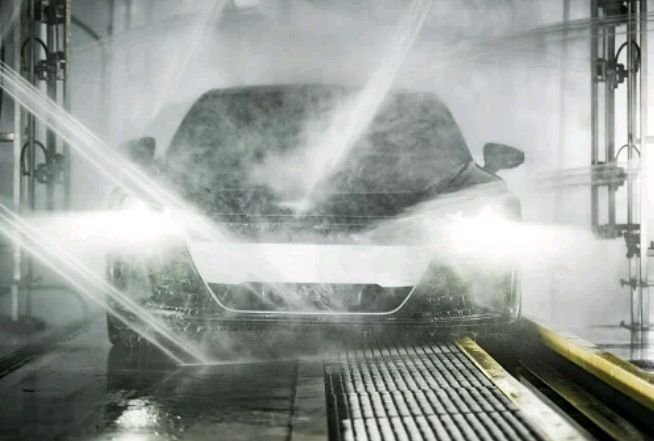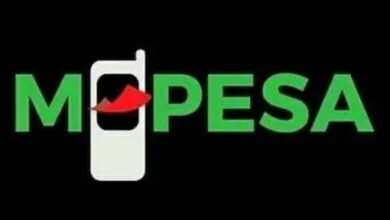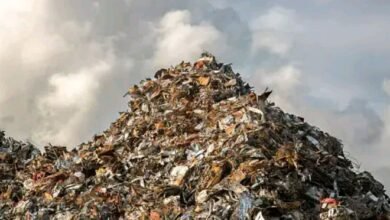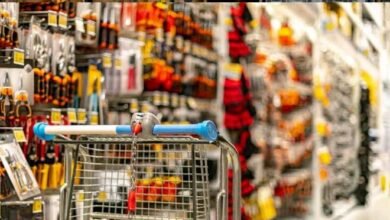Requirements And Cost Of Starting A Car Wash Business In Kenya

Starting a car wash business in Kenya where car ownership is on the rise is probably the best decision. This is because the car wash business has emerged as one of the most profitable businesses that has already existing and steady customers for you.
With the increased access to affordable vehicles, the demand for professional car cleaning services is experiencing steady growth. And this generation has placed special attention on maintaining their vehicles and keeping them clean. Meanwhile, for them to achieve this, the services of a car wash will be required.
To get started, you need to have a clear understanding of how a car wash business works and all the comprehensive information you need for a successful operation.
Nevertheless, this article will serve as a guide and will provide you with the essential steps & solid information necessary to run a successful car wash business through our Frequently Asked Questions.
How Do I Conduct Market Research For A Car Wash Business?
Here are essential steps and considerations for conducting market research for a car wash business:
1. Understanding The Car Wash Industry: To begin your market research, it is crucial to gain a deep understanding of the car wash industry in Kenya. Start by examining the current market size, growth trends, and key players. Identify the different types of car wash facilities available, including manual hand washes, automated washes, and self-service washes. Determine the pricing models, services offered, and customer preferences within the industry.
2. Defining Your Target Market: To effectively position your car wash business, you must identify and understand your target market. Consider the demographics, psychographics, and behaviors of potential customers. Are you targeting individual car owners, corporate fleets, or both? Assess their preferences, such as convenience, affordability, and quality of service. Understanding your target market’s needs and expectations will help you tailor your business offerings accordingly.
3. Analyzing Competitors: Conducting a comprehensive competitor analysis is vital to assess the competitive landscape and identify areas of opportunity. Identify the key car wash businesses operating in your target area and analyze their strengths, weaknesses, pricing strategies, service quality, and customer satisfaction levels. Study their marketing and promotional activities to gain insights into effective strategies that you can adopt or improve upon.
4. Conducting Primary Market Research: Primary market research involves gathering firsthand information directly from your potential customers. This can be done through surveys, interviews, focus groups, or observation. Develop a well-structured questionnaire or interview guide to gather valuable insights on customer preferences, service expectations, pricing sensitivity, and overall satisfaction with existing car wash facilities. Aim for a diverse sample to ensure your findings are representative of your target market.
5. Collecting Secondary Market Research: Secondary market research involves gathering existing information and data from credible sources such as industry reports, government publications, trade associations, and online databases. This data can provide valuable insights into the overall car wash industry, market trends, consumer behavior, and economic factors affecting the business. Analyze and interpret this data to make informed decisions regarding your business strategy.
6. Assessing Location And Accessibility: Location is a critical factor for the success of a car wash business. Identify potential locations that are easily accessible to your target market, ideally near busy roads or residential areas with a high concentration of car owners. Assess factors such as traffic flow, parking availability, visibility, and proximity to complementary businesses like gas stations or auto repair shops. Consider the cost implications and any necessary permits or zoning requirements.
7. Estimating Financial Viability: Conducting a financial analysis is essential to determine the potential profitability and sustainability of your car wash business. Evaluate the initial investment costs, including land acquisition or lease, construction or renovation, equipment purchase, staffing, marketing, and operational expenses. Estimate your revenue streams, taking into account pricing, customer volume, and average ticket value. Perform a break-even analysis and project cash flow, ensuring the business is financially viable.
What Are The Different Types Of Car Wash Businesses I Can Start?
1. Self-Service Car Wash: The self-service car wash model allows vehicle owners to clean their cars independently using the provided equipment and facilities. This type of car wash typically offers various washing bays equipped with high-pressure water hoses, brushes, vacuum cleaners, and cleaning agents. Self-service car washes appeal to individuals who prefer a hands-on approach to car cleaning, giving them the freedom to personally attend to their vehicles’ specific needs.
2. Automated Car Wash: Automated car wash businesses employ advanced technology to provide efficient and convenient cleaning services. These establishments feature automated washing systems that utilize brushes, rollers, and high-pressure water jets to clean vehicles. Customers simply drive their cars onto the conveyor belt, and the automated process takes care of the rest. Automated car washes are favored by busy individuals seeking a quick and hassle-free car cleaning experience.
3. Hand Wash: Hand wash car washes emphasize meticulous attention to detail and offer personalized cleaning services. Skilled technicians thoroughly clean and pamper each vehicle by hand, utilizing high-quality cleaning products and techniques. Hand wash establishments often provide additional services such as interior vacuuming, leather conditioning, and waxing. Car owners who prioritize meticulous care and a premium cleaning experience often opt for hand wash services.
4. Mobile Car Wash: The mobile car wash business model offers the convenience of on-demand cleaning services at the customer’s location. Mobile car wash operators bring their equipment and supplies directly to the customer’s home, office, or any other desired location. This type of car wash is particularly popular among busy professionals, fleet owners, and individuals who prefer the convenience of having their vehicles cleaned at their doorstep.
5. Express Car Wash: Express car washes focus on efficiency, providing quick and streamlined cleaning services. These establishments employ a combination of automated systems and skilled staff to ensure a fast turnaround time. Express car washes often feature a conveyor belt system that efficiently moves vehicles through various cleaning stages, such as pre-soaking, washing, rinsing, and drying. This type of car wash is ideal for individuals looking for a prompt and effective cleaning solution.
6. Eco-Friendly Car Wash: With growing environmental concerns, eco-friendly car washes have gained popularity in Kenya. These establishments utilize water-saving techniques, biodegradable cleaning products, and eco-conscious practices to minimize their impact on the environment.
Eco-friendly car washes often incorporate technologies like water recycling systems and steam cleaning methods to reduce water consumption and chemical waste. Environmentally-conscious individuals who seek sustainable car cleaning options often choose these establishments.
What Services Are Offered In A Car Wash Business?
1. Exterior Cleaning Services:
- Hand Wash: Car wash attendants use a meticulous handwashing technique to gently remove dirt, grime, and debris from the vehicle’s exterior, ensuring a thorough cleaning without causing any damage.
- Automatic Car Wash: Ideal for those seeking convenience, automatic car wash systems employ mechanical brushes or high-pressure water jets to clean the vehicle’s exterior. This service offers a quick and efficient cleaning process.
2. Specialized Cleaning Services:
- Undercarriage Wash: Vital for removing dirt, mud, and salt accumulated underneath the vehicle, undercarriage washes help prevent corrosion and rust, particularly after off-road adventures or during the rainy season.
- Engine Bay Cleaning: This service involves a thorough cleaning of the engine bay to remove grease, oil, and dirt build-up, ensuring optimal engine performance and reducing the risk of electrical issues.
- Headlight Restoration: Over time, headlights may become cloudy or yellowed, hindering visibility. Car wash businesses offer headlight restoration services to enhance visibility and improve safety on the road.
- Rim Cleaning: Specialized tools and solutions are used to remove stubborn brake dust, dirt, and grime from the rims, restoring their original shine and protecting them from damage.
3. Interior Cleaning Services:
- Vacuuming: Car wash attendants meticulously vacuum the interior, removing dust, dirt, and debris from carpets, seats, and other surfaces.
- Upholstery Cleaning: This service involves thorough cleaning and stain removal from seats, carpets, and upholstery, leaving the interior fresh and revitalized.
- Leather Treatment: Car wash businesses offer leather conditioning and cleaning services, preserving the softness, luster, and longevity of leather seats.
- Odor Elimination: Using specialized techniques and products, car wash professionals eradicate unpleasant odors caused by spills, food, pets, or smoking, leaving the interior smelling fresh and clean.
4. Additional Services Like:
- Polishing And Waxing: Car wash businesses offer polishing and waxing services to restore the vehicle’s paintwork, enhance its shine, and provide protection against environmental elements.
- Paint Protection: Applying protective coatings or sealants helps safeguard the vehicle’s paintwork from scratches, oxidation, and UV damage, ensuring long-lasting beauty.
- Glass Treatment: Car washes offer glass cleaning and treatment services, removing water spots, fingerprints, and smudges for improved visibility.
- Tire Dressing: Tire dressing rejuvenates and enhances the appearance of tires, leaving them with a rich, glossy finish.
What Are The Equipment Needed To Start A Car Wash Business?
Here is the list of the best car wash equipment:
1. High-Pressure Washer: A high-pressure washer is the backbone of any car wash business. This equipment uses pressurized water to effectively remove dirt, grime, and other contaminants from the car’s surface. When choosing a high-pressure washer, opt for a model with adjustable pressure settings, multiple nozzles for different cleaning purposes, and a durable build to withstand frequent use.
2. Water Treatment System: Water scarcity is a significant concern in Kenya, making it essential for car wash businesses to prioritize water conservation.
Installing a water treatment system allows you to recycle and reuse water, minimizing water wastage. The system should include components such as sediment filters, carbon filters, and reverse osmosis membranes to ensure the water used in your car wash is clean and free from impurities.
3. Car Wash Brushes And Mitts: To achieve a thorough and scratch-free cleaning, you will need a variety of car wash brushes and mitts. Soft bristle brushes and microfiber mitts are gentle on the car’s paintwork while effectively removing dirt and grime. Look for brushes with long handles and adjustable angles for reaching difficult areas, as well as mitts that are absorbent and durable.
4. Vacuum Cleaner: A powerful vacuum cleaner Is indispensable for interior cleaning. Invest in a commercial-grade vacuum cleaner with sufficient suction power to efficiently remove dust, debris, and pet hair from the car’s upholstery, carpets, and floor mats. Attachments such as crevice tools and upholstery brushes can enhance the versatility of your vacuum cleaner.
5. Air Compressor: An air compressor is useful for blowing out dust and dirt from hard-to-reach areas such as vents, crevices, and engine compartments. This equipment ensures a thorough cleaning and prevents the accumulation of debris that can impact the car’s performance.
Consider a portable air compressor with various nozzle attachments for versatility and convenience.
6. Steam Cleaners: Steam cleaners are highly effective in deep-cleaning and sanitizing car interiors. These machines use high-temperature steam to remove tough stains, eliminate bacteria and germs, and deodorize upholstery and carpets.
Look for a steam cleaner with adjustable pressure settings, a range of attachments for different surfaces, and a fast heating time for improved efficiency.
7. Polishers And Buffers: To provide a professional finish to your car wash services, invest in polishers and buffers. These machines are designed to remove scratches, swirl marks, and oxidation from the car’s paintwork, restoring its shine and luster. Opt for dual-action polishers that are user-friendly and provide excellent results without the risk of damaging the paint.
What Are The Best Practices For Maintaining Car Wash Equipment?
1. Understanding The Equipment:
Before diving into the maintenance practices, it’s essential to familiarize yourself with the different components of car wash equipment. Typically, a car wash system consists of the following key elements:
Wash Bay Components:
- High-pressure pumps
- Water reclaim systems
- Chemical dispensers
- Air compressors
- Water heating systems
- Brushes, nozzles, and wands
Water Treatment Systems:
- Sediment filters
- Reverse osmosis systems
- Water softeners
- Chemical injectors
2. Regular Cleaning And Inspection:
Exterior Cleaning:
- Thoroughly clean the exterior surfaces of the equipment using mild detergent and water.
- Pay special attention to removing dirt, grime, and chemical residue from sensitive areas.
- Regularly inspect hoses, nozzles, and wands for any signs of wear or damage.
Interior Cleaning:
- Clean the interior components, such as pumps, filters, and valves, following the manufacturer’s guidelines.
- Remove any debris or clogs that may hinder the equipment’s performance.
- Inspect and clean chemical injectors to ensure proper dispensing.
3. Preventive Maintenance:
Develop A Maintenance Schedule:
- Create a comprehensive maintenance schedule based on the manufacturer’s recommendations and industry best practices.
- Include tasks like filter replacement, lubrication, pump inspections, and system testing.
- Regularly review and update the schedule as needed.
Lubrication:
- Apply lubricants to moving parts, such as bearings and pulleys, to minimize friction and prevent premature wear.
- Use the appropriate lubricants recommended by the equipment manufacturer.
- Follow a regular lubrication schedule to maintain optimal performance.
Filter Replacement:
- Regularly replace filters to ensure the cleanliness of the water supply and prevent clogs.
- Follow the manufacturer’s guidelines for filter replacement frequency.
- Keep spare filters on hand to minimize downtime during replacements.
4. Troubleshooting And Repairs:
Identify Common Issues:
- Familiarize yourself with common problems that may arise with car wash equipment, such as pump malfunctions, leaks, or electrical issues.
- Refer to the equipment’s user manual or contact the manufacturer for troubleshooting steps.
Addressing Minor Repairs:
- Equip yourself with the necessary tools to handle minor repairs, such as replacing damaged hoses or valves.
- Regularly inspect the equipment for signs of wear or loose connections.
- Promptly address any minor issues before they escalate into major problems.
Professional Assistance:
- For complex repairs or major equipment failures, it is recommended to seek the expertise of professional technicians.
- Regularly schedule professional inspections to identify potential issues and perform preventive maintenance.
What Are The Risks Involved In Starting A Car Wash Business?
Here are the various risks associated with starting a car wash business in Kenya:
1. Market Risks
- Intense Competition: The car wash industry in Kenya is highly competitive, with numerous players vying for market share. This poses a risk of market saturation and the need for differentiation to attract and retain customers.
- Fluctuating Customer Demand: The demand for car wash services can be influenced by economic factors, seasonal variations, and the availability of alternative options. Business owners must anticipate and adapt to these changes to maintain a steady stream of customers.
2. Regulatory And Legal Aspect
- Licensing And Permits: Starting a car wash business in Kenya requires compliance with various licensing and permit requirements, which can be time-consuming and involve bureaucratic hurdles.
- Environmental Regulations: Car wash operations can have environmental implications, such as water and chemical waste management. Failure to comply with environmental regulations can result in fines and legal consequences.
3. Financial Risks And Operational Challenges
- Initial Capital Investment: Establishing a car wash facility demands significant upfront investment in land, equipment, infrastructure, and personnel. Insufficient capital or poor financial planning can jeopardize the business’s sustainability.
- Revenue Fluctuations: Seasonal variations and economic downturns can impact the cash flow of a car wash business. Adequate financial management and contingency plans are essential to mitigate the risk of revenue fluctuations.
- Operational Efficiency: Maintaining consistent service quality and ensuring smooth operations can be challenging. Inadequate staff training, equipment breakdowns, and supply chain disruptions can hamper business performance and customer satisfaction.
4. Security And Safety Aspect
- Theft And Vandalism: Car wash businesses may be vulnerable to theft of equipment, cash, or customers’ belongings. Implementing robust security measures, such as surveillance systems and proper employee screening, is crucial to mitigate these risks.
- Health And Safety: Car wash operations involve the use of chemicals, machinery, and potentially hazardous substances. Failure to adhere to safety protocols can result in accidents, injuries, and legal liabilities.
5. Human Resources And Workforce Management:
- Recruitment And Training: Finding and retaining skilled and reliable staff members can be a challenge. Inadequate training or high employee turnover can compromise service quality and customer satisfaction.
- Risks Associated With Labor Laws And Employee Benefits: Complying with labor laws, such as minimum wage regulations and employee benefits, is crucial. But failure to do so can lead to legal disputes, penalties, and damage to the business’s reputation.
What Are The Common Mistakes To Avoid?
1. Inadequate Market Research: Before diving into any business venture, thorough market research is essential. One common mistake is failing to gather sufficient information about the car wash industry in Kenya.
Understanding the local demand, competition, target audience, and pricing structures are critical factors that can significantly impact your business’s success. Conducting comprehensive market research allows you to make informed decisions and develop effective strategies tailored to the Kenyan market.
2. Poor Location Selection: Choosing the right location is paramount when starting a car wash business. Many entrepreneurs make the mistake of selecting a location without considering factors such as accessibility, visibility, proximity to target customers, and local regulations. It is crucial to identify areas with high traffic and a significant number of potential customers.
Additionally, ensure compliance with zoning laws and any specific regulations related to car wash operations in Kenya.
3. Neglecting A Well-Defined Business Plan: A well-crafted business plan serves as a roadmap for success. Unfortunately, some entrepreneurs overlook this crucial step. A comprehensive business plan should outline your objectives, target market analysis, financial projections, marketing strategies, and operational details. It acts as a blueprint that guides your decisions, attracts potential investors or lenders, and provides a clear direction for your car wash business.
4. Insufficient Capitalization: Insufficient funding is a common pitfall that can hinder the growth and sustainability of a car wash business. Entrepreneurs often underestimate the initial investment required, including equipment, infrastructure, staff wages, licensing fees, marketing expenses, and working capital.
It is vital to conduct a thorough financial analysis to determine the required capital and secure adequate funding sources, such as personal savings, loans, or potential investors.
5. Lack Of Proper Equipment And Maintenance: Investing in high-quality car wash equipment is essential for delivering satisfactory services and ensuring customer satisfaction. Many car wash owners make the mistake of opting for subpar equipment to save costs, resulting in lower-quality washes and potential damage to customers’ vehicles. Regular equipment maintenance is equally important to prevent breakdowns and ensure optimal performance.
Budgeting for quality equipment and establishing a maintenance schedule will help avoid costly repairs and maintain customer loyalty.
6. Ineffective Marketing Strategies: Even with exceptional car wash services, without effective marketing, your business may struggle to attract customers. Many entrepreneurs neglect or underestimate the importance of marketing efforts, relying solely on word-of-mouth or assuming that customers will naturally find their car wash.
Investing in a well-rounded marketing plan that includes online advertising, social media presence, local promotions, and partnerships can significantly boost your visibility and attract a steady stream of customers.
7. Poor Customer Service: Providing exceptional customer service is paramount for any successful business, including car washes. Neglecting this aspect can lead to dissatisfied customers and a damaged reputation. Train your staff to be friendly, professional, and attentive to customer needs.
Offering additional services, such as interior cleaning or complimentary refreshments, can also enhance the overall customer experience and generate positive word-of-mouth referrals.
How Do I Register My Car Wash Business With The Relevant Authorities In Kenya?
Registering your car wash business is not just a legal requirement; it also offers several advantages. By formalizing your business, you gain credibility, access to financing options, and protection for your assets. Additionally, registration ensures compliance with various laws and regulations.
1. Choose A Business Name: Selecting an appropriate and unique name for your car wash business is crucial. The name should reflect your brand identity and be easy to remember. It is important to check the availability of the chosen name and register it with the relevant authorities, such as the Companies Registry.
2. Business Structure And Ownership: Deciding on the appropriate business structure, whether sole proprietorship, partnership or limited company, is essential. Each structure has different legal and financial implications. Choose the structure that aligns with your goals and consult legal professionals if needed.
3. Obtaining Necessary Licenses And Permits: To operate a car wash business legally in Kenya, you must obtain specific licenses and permits. This includes a business permit from the county government, a water abstraction permit, and an environmental impact assessment license. Understand the requirements and procedures for each license and ensure timely application.
4. Tax Registration And Compliance: Registering for taxes is mandatory for all businesses in Kenya. Familiarize yourself with the different taxes applicable to car wash businesses, such as VAT, income tax, and withholding tax. Register with the Kenya Revenue Authority (KRA) and fulfill your tax obligations regularly to avoid penalties.
5. Register With Social Security Authorities: As an employer, you need to register with the National Social Security Fund (NSSF) and the National Health Insurance Fund (NHIF). These registrations ensure that you contribute to social security benefits and provide medical cover for your employees.
6. Register With Local Government Authorities: Contact your local county government office to register your car wash business and obtain a business permit. The requirements and fees may vary, so research the specific regulations applicable to your area.
7. Environmental And Health Regulations: Complying with environmental and health regulations is essential for car wash businesses. Ensure proper waste management, water conservation, and adherence to safety standards. Seek guidance from relevant authorities, such as the National Environment Management Authority (NEMA), to meet the required standards.
8. Insurance Requirements: Protect your car wash business by obtaining appropriate insurance coverage. Consider general liability insurance, workers’ compensation insurance, and property insurance to safeguard against potential risks and accidents.
How Much Does It Cost To Start A Car Wash Business In Kenya?
Here is an in-depth analysis of the expenses associated with starting a car wash business in Kenya.
1. Business Registration And Licensing: To operate legally in Kenya, registering your car wash business and obtaining the necessary licenses and permits is mandatory. The costs associated with this process include:
- Business Registration: Registering your business with the relevant government authorities, such as the Registrar of Companies, typically incurs a fee of Ksh 10,000 to Ksh 30,000, depending on the nature of your business structure (sole proprietorship, partnership, or limited company).
- Licenses And Permits: Obtaining licenses and permits specific to the car wash industry, such as health permits and environmental compliance certificates, may cost approximately Ksh 10,000 to Ksh 50,000, depending on the location and size of your car wash facility.
2. Location And Facilities: The location and facilities for your car wash business play a crucial role in attracting customers and ensuring smooth operations. Consider the following expenses:
- Lease Or Land Purchase: The cost of leasing a suitable property or purchasing land for your car wash facility will vary depending on the location and size. Lease expenses can range from Ksh 30,000 to Ksh 100,000 per month, while land purchase costs can be significantly higher, starting from Ksh 500,000 and going upwards.
- Construction Or Renovation: Designing and constructing a car wash facility, including washing bays, waiting areas, office space, and equipment storage, requires careful planning and budgeting. The cost of construction or renovation can range from Ksh 500,000 to Ksh 2 million, depending on the complexity and quality of the infrastructure.
3. Equipment And Supplies Cost: To provide efficient car wash services, you will need the right equipment and supplies. Here are some essential items and their estimated costs:
- Pressure Washers And Water Storage: Investing in high-quality pressure washers and water storage tanks is essential. The cost for these items can range from Ksh 100,000 to Ksh 300,000, depending on the brand and capacity.
- Vacuum Cleaners And Air Compressors: To offer additional services such as interior cleaning, vacuum cleaners, and air compressors are necessary. Budgeting around Ksh 50,000 to Ksh 150,000 for these items is reasonable.
- Cleaning Chemicals And Supplies: Stocking up on cleaning chemicals, detergents, and other supplies is an ongoing expense. The initial investment in cleaning chemicals and supplies can range from Ksh 50,000 to Ksh 100,000, depending on the size of your car wash facility and the anticipated demand.
4. Staffing and Training Related Costs: Running a successful car wash business requires a competent and well-trained workforce. Consider the following costs related to staffing and training:
- Wages And Salaries: Allocating a budget for employee wages and salaries is essential. The number of employees you hire will depend on the size of your business and the range of services you offer. On average, monthly wages for car wash attendants in Kenya range from Ksh 10,000 to Ksh 20,000 per employee.
- Training And Development: Investing in employee training and development programs ensure the provision of high-quality services. Setting aside a budget of approximately Ksh 10,000 to Ksh 20,000 for training expenses per employee per year is advisable.
5. Marketing And Promotion: To attract customers and establish a strong presence in the market, effective marketing and promotion strategies are crucial. Consider the following expenses:
- Advertising And Promotion: Investing in advertising channels such as print media, radio, and online platforms can contribute to the visibility of your car wash business. Allocating a monthly budget of around Ksh 20,000 to Ksh 50,000 for advertising and promotional activities is a reasonable estimate.
- Signage And Branding: Creating attractive signage and branding materials, including logos, business cards, and flyers, is important for brand recognition. Setting aside around Ksh 10,000 to Ksh 30,000 for signage and branding expenses is a good starting point.
You can start a car wash business in Kenya with as low as Ksh 800,000 and as high as Ksh 3,350,000.
How Profitable Is A Car Wash Business?
The profitability of a car wash business in Kenya can vary depending on various factors such as location, competition, pricing, and the quality of services offered. Generally, car wash businesses in Kenya have the potential to be profitable due to the high demand for car cleaning services. And also, Kenya has a large population with a growing middle class, leading to an increasing number of car owners who seek professional car washing and detailing.
However, factors that can contribute to profitability include selecting a strategic location with high visibility and easy access for customers, offering a range of services such as interior cleaning, waxing, and polishing, providing excellent customer service, and implementing effective marketing strategies to attract and retain customers.
How Much Does A Car Wash Make A Month?
On average, a well-established car wash business in Kenya can generate monthly revenues ranging from Ksh 300,000 to Ksh 1,000,000 (approximately $3,000 to $10,000). However, it is important to note that these figures are approximate and can vary significantly based on some factors like location and the quality of services you are offering.
In high-traffic locations, where a car wash business can attract a large volume of customers, the monthly revenue potential can exceed Ksh 1,000,000. Additionally, offering value-added services such as detailing, upholstery cleaning, or waxing can further boost revenue.
Moreover, car wash businesses that adopt technology-driven automation and leverage mobile applications for bookings and payments have the potential to increase efficiency and profitability.
Summary On How To Start A Car Wash Business In Kenya
Here is a summary guide on the car wash business:
1. Research And Planning: Before diving into any business venture, it is essential to conduct thorough research and develop a solid plan. This initial step lays the foundation for your business and increases the chances of long-term success. Here are the key aspects to consider during this phase:
- Identify Your Target Market: Determine your target market by analyzing the local demand for car wash services. Assess the demographic profile of potential customers, including their preferences, income levels, and location. Additionally, consider the presence of competitors and identify ways to differentiate your services.
- Conduct A Feasibility Study: Perform a feasibility study to evaluate the viability of your car wash business. Assess the market size, growth potential, competition, and potential risks. This study will help you understand the market dynamics and make informed decisions.
- Develop A Business Plan: Create a comprehensive business plan that outlines your vision, mission, objectives, marketing strategies, financial projections, and operational structure. A well-crafted business plan is crucial for securing funding and providing guidance for future growth.
2. Legal Requirements And Registrations: To operate your car wash business legally, you must fulfill various legal requirements and complete the necessary registrations. Consider the following steps:
- Business Name Registration: Choose a unique and catchy name for your car wash business. Register the name with the relevant authorities, such as the Kenyan Registrar of Companies, to protect your brand identity.
- Business Permits And Licenses: Obtain the required permits and licenses to operate your car wash business. These may include a trade license, environmental permits, water usage permits, and any other permits mandated by local authorities.
- Tax Obligations: Register your car wash business for tax purposes with the Kenya Revenue Authority (KRA). Familiarize yourself with the tax regulations, including VAT, income tax, and other applicable taxes. Maintain accurate financial records and comply with tax filing and payment deadlines.
3. Location And Infrastructure: Choosing the right location and setting up the necessary infrastructure are crucial factors that contribute to the success of your car wash business:
- Location Selection: Identify a strategic location that is easily accessible to your target market. Consider proximity to busy roads, residential areas, shopping centers, or office complexes. Ensure sufficient parking space and good visibility to attract customers.
- Infrastructure Setup: Set up an efficient car wash infrastructure, including wash bays, water supply systems, drainage, electrical connections, and customer waiting areas. Invest in high-quality equipment, such as pressure washers, vacuums, and cleaning solutions, to provide excellent service.
- Staffing And Training: Recruit and train a competent team of employees who are knowledgeable about car cleaning techniques, customer service, and safety procedures. Emphasize professionalism and ensure that your staff adheres to high standards of cleanliness and customer satisfaction.
4. Marketing And Promotion: To attract customers and build a strong customer base, effective marketing and promotion strategies are essential:
- Branding And Logo Design: Create a unique and visually appealing brand identity for your car wash business. Design a professional logo, select attractive color schemes, and develop a consistent branding strategy across all marketing materials.
- Online Presence: Establish an online presence by creating a website and engaging on social media platforms. Showcase your services, provide contact information, and share customer reviews and testimonials. Regularly update your online platforms with engaging content, promotions, and special offers to attract and retain customers.
- Local Marketing: Implement targeted local marketing strategies to reach your potential customers. Distribute flyers, brochures, or business cards in nearby residential areas, offices, and local businesses. Consider partnerships with local car dealerships, auto repair shops, or car rental agencies for referral opportunities.
5. Operations And Customer Service: Maintaining efficient operations and delivering exceptional customer service is crucial for the long-term success of your car wash business:
- Standard Operating Procedures: Develop standard operating procedures (SOPs) for all aspects of your car wash operations, including car cleaning processes, equipment maintenance, customer interactions, and financial management. SOPs ensure consistency, quality control, and smooth operations.
- Quality Service And Customer Satisfaction: Focus on delivering superior service and exceeding customer expectations. Train your staff to provide meticulous car cleaning services, handle customer inquiries and complaints professionally, and maintain a clean and welcoming environment.
- Regular Equipment Maintenance: Establish a routine maintenance schedule for your equipment to ensure optimal performance and minimize downtime. Regularly inspect and repair machinery, replace worn-out parts, and maintain cleanliness in the wash bays and surrounding areas.












